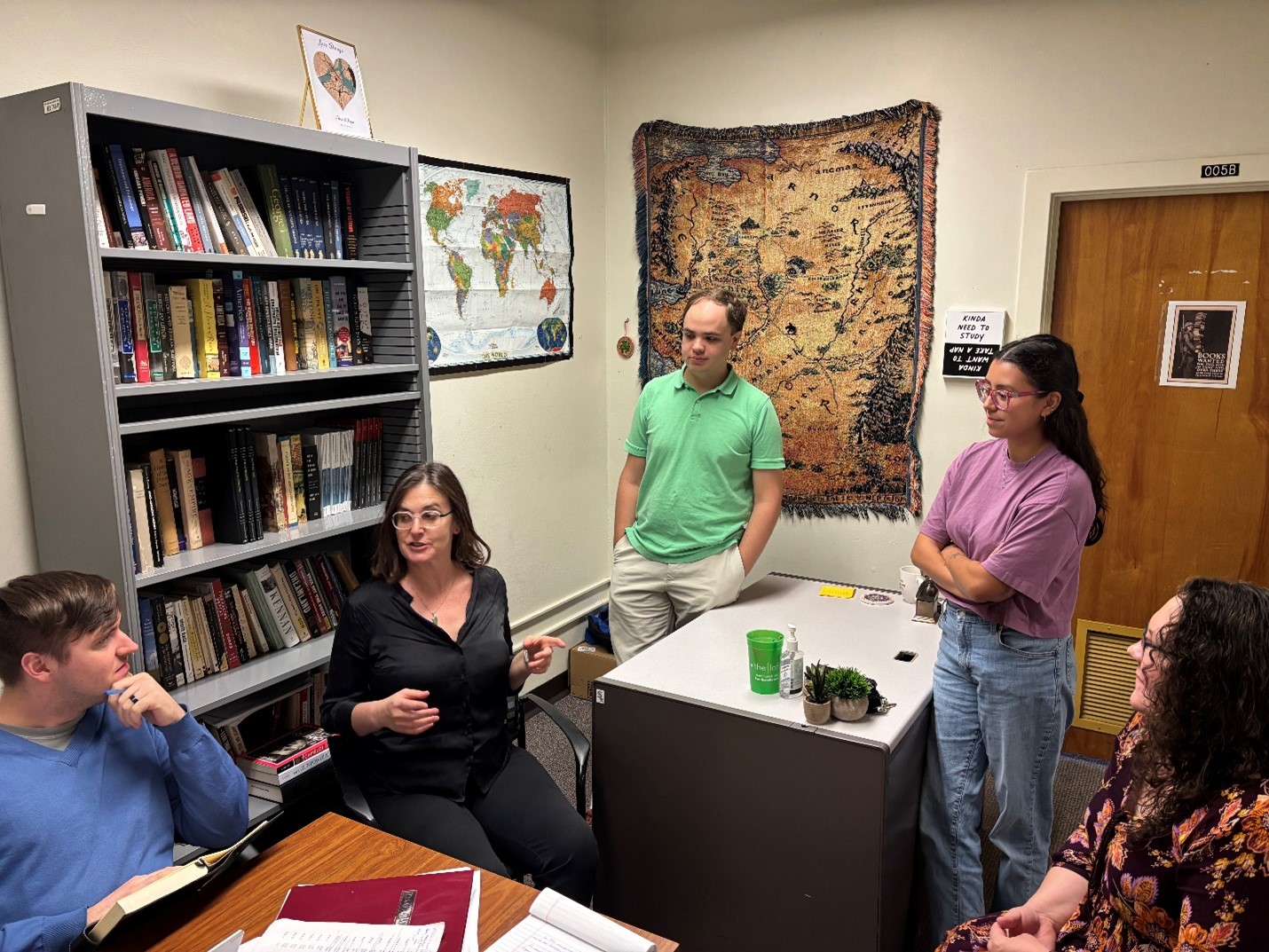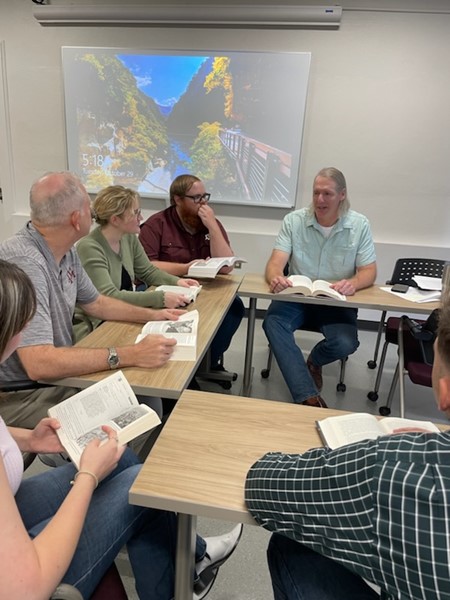The Department of History started writing a new chapter for graduate studies in the department with the installation of two new leaders in September 2024. The new History Department graduate program leadership has exciting plans to promote graduate student success. For the next three-year term our new Director of Graduate Studies is Dr. Katherine Unterman. Her vision for the program has three pillars. The first is the student experience – making sure that Texas A&M is a place where our history graduate students can thrive. This involves both tangible factors, like making sure that students’ stipends are high enough to meet their living expenses, as well as intangible factors, like maintaining a collegial atmosphere.
A second pillar is training. In their courses and professional development workshops, students need a strong foundation in the basic building blocks of the profession. Dr. Unterman humorously compare this to “Generic Barbie” in the “Barbie” movie; in their first two years, we train students how to be “Generic Historian.” But that isn’t the end of the story — from there, they can arrange these building blocks in many different ways, and add on new ones, to be all kinds of historians. They can specialize in any subfield, develop skills as public historians, or pursue various career paths. They can even become the historian equivalent of Weird Barbie!
The third pillar is service. Our graduate students are also Aggies, and one of the Aggie core values is selfless service. Dr. Unterman encourages graduate students to give back to the larger community — the History Department, the university, and Bryan-College Station. Whether this is through community history projects or mentoring undergrads, it is important for our graduate students to give back as much as they take.
Dr. Unterman also aims to improve graduate recruitment, increase graduate stipends, give GALs more classroom training, and boost our new legal history and 3+2 M.A. programs.

The new Graduate Professional Development Director for the History Department is Dr. Jason Parker. He plans to develop our program to incorporate Graduate Professional Development Workshops that will help our students think strategically about their own program as a pathway to various career possibilities. In addition to training students to conduct archival research, preparing manuscripts for publication, winning grants and fellowships, the Workshops will examine “career-diversity opportunities,” all with the aim of guiding our graduate students “to find a career path that puts their love of– and degree in– history to fulfilling use.”

